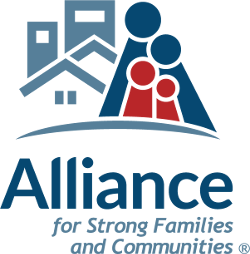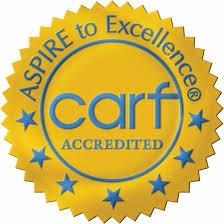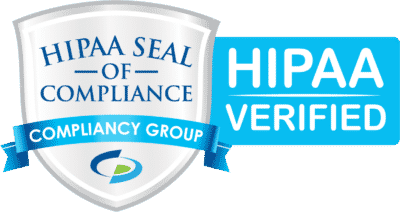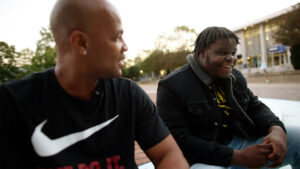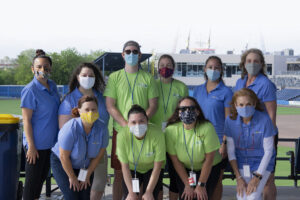If you found out that nearly one in two teens in foster care may face a substance use issue… what would you do?
That’s the reality we’re living in.
Substance use among youth in foster care is a growing crisis, and yet, it’s one that rarely gets the spotlight it deserves. With childhood trauma, system-related instability, and emotional neglect all in the mix, many teens are turning to substances to cope.
The question is: Are we meeting them with support, or are we letting them fall through the cracks?
It’s important to note that while some still use the term substance abuse, the more inclusive and compassionate term substance use is now preferred in behavioral health and foster care settings.
Using non-stigmatizing language helps us recognize the dignity of those affected and encourages more open, supportive conversations. Every young person deserves to be met with understanding, not judgment.
The Overlooked Truth About Foster Care and Substance Use
Let’s start with the hard truth. Kids and teens in foster care are more likely to experience mental health challenges, trauma, and substance use disorders (SUD) than their peers. They’re also more likely to be exposed to environments with drug or alcohol use before entering care.
According to recent studies, substance use rates in foster care youth may be as high as 49%.
Let that sink in. That’s almost half.
Now consider this: most youth in foster care don’t get the consistent mental health or substance use counseling they need. Some never even receive a screening.
That’s how cycles repeat. That’s how we lose kids — not always to substance use, but emotionally, developmentally, and psychologically.
Why Are Foster Youth More Vulnerable?
There’s no single reason. Instead, there’s a web of risk factors.
Trauma and Abuse
Many youth enter the foster system after surviving physical, sexual, or emotional abuse. Unresolved trauma is one of the strongest predictors of substance use in teens.
Instability
Frequent placement changes, inconsistent schooling, and being separated from siblings or familiar caregivers can deeply affect mental health. The instability fosters anxiety, depression, and low self-worth—all of which are tied to substance use.
Lack of Emotional Support
Most teens need a strong, consistent adult relationship to navigate life’s challenges. Foster youth often don’t have that. This lack of connection can increase the risk of turning to substances for comfort or control.
Mental Health Challenges
Foster youth have higher rates of mental health diagnoses like PTSD, depression, and ADHD. When left untreated—or improperly treated—substance use often becomes a way to self-medicate.
How Substance Use Affects Development in Teens
Substance use doesn’t just impact short-term behavior. It affects brain development, emotional regulation, and long-term life outcomes.
Teen brains are still developing—especially the parts responsible for decision-making, impulse control, and emotional processing. Substance use during this critical time can:
- Impair memory and learning
- Increase impulsivity
- Raise the risk of lifelong addiction
- Disrupt educational and career paths
- Deepen existing trauma or mental health issues
For foster youth already facing an uphill battle, this only compounds the difficulty of breaking the cycle.
Why Early Intervention Matters
Here’s what too many systems get wrong: they wait for a full-blown crisis before stepping in.
But by the time a teen is deep in addiction, the road to recovery gets harder. Not impossible, but harder.
That’s why universal screening and early counseling are game changers. By identifying risk factors and emotional triggers early, a substance use counselor can step in with support before things escalate.
It’s not just about “quitting drugs.” It’s about:
- Building emotional regulation skills
- Strengthening self-worth
- Learning how to process trauma in a healthy way
- Rebuilding trust with adults
- Creating a plan for a better future
The Gap in Medication Support for Adolescents
Unlike adults, teens with substance use disorders have limited access to medication-assisted treatment (MAT). Buprenorphine is the only FDA-approved medication for those under 18—and many providers hesitate to use it due to stigma or lack of training.
This makes therapy and behavioral intervention even more essential for youth in foster care. It also highlights the need for more research, more training, and better systems to support younger populations.

What Can Be Done Differently?
Foster youth don’t just need intervention. They need access, consistency, and trauma-informed care tailored to their lived experiences.
It starts with recognition—and continues with action.
1. Train Foster Parents and Caseworkers
Frontline adults need more training to recognize early warning signs, understand substance use and trauma-informed care. Too often, youth are labeled “difficult” instead of being seen as survivors.
2. Implement Trauma-Informed Systems
Every touchpoint—schools, clinics, group homes—must use trauma-informed practices. That includes how professionals speak to youth, discipline them, and build relationships.
3. Expand Access to Therapists Trained in Foster Youth Issues
Generic substance use treatment isn’t enough. Youth in foster care need access to counselors who understand the foster system, childhood trauma, and youth development.
4. Reduce Placement Disruptions
Youth in therapy should not lose access to their counselor every time they move homes. Continuity of care is vital—and yet, it’s disrupted constantly. Systems need to allow for telehealth, flexible therapy, and case coordination.
5. Involve Youth in Their Recovery Plan
Teens don’t respond well to top-down rules. Successful programs give them a voice and a role in shaping their treatment. This builds trust and increases engagement.
What Does Substance Use Counseling Look Like?
A good substance use counselor doesn’t just talk — they connect. Especially when working with foster youth who may not trust easily.
Let’s break down what effective substance use counseling for foster youth includes:
Cognitive Behavioral Therapy (CBT)
Trauma-focused Cognitive Behavioral Therapy (TF-CBT) is a short-term, evidence-based therapy that supports youth and their caregivers heal after trauma, while learning healthy coping skills and strengthening relationships.
Motivational Interviewing
Rather than telling youth what they should do, this approach meets them where they are. It encourages self-reflection and helps teens find their own reasons to change.
Family-Based Therapy
In foster care, “family” can be a foster parent, a caseworker, or a relative. Whoever the adult support system is, they’re included in therapy to help rebuild communication and trust.
Group Counseling
Hearing from peers who’ve been through similar struggles can be powerful. It also builds community and reduces shame.
Case Management
Because substance use doesn’t exist in a bubble, case management ensures that medical, legal, and school-related issues are addressed alongside therapy.
For Foster Parents and Caseworkers: What You Should Know
You don’t have to be a therapist to make an impact.
Here’s how you can support foster youth facing substance use issues:
- Watch for early signs of substance use like secretive behavior, mood swings, or dropping grades
- Encourage open, non-judgmental conversations about stress and mental health
- Advocate for screenings and substance use counseling for foster youth — even if the they haven’t asked for help
- Normalize therapy and recovery as healthy, not shameful
- Connect with professionals who know how to help
The Bottom Line
Substance use among foster youth is not just a “behavioral issue.” It’s a reflection of deeper trauma, systemic gaps, and unmet emotional needs.
Treatment works. Counseling helps. Stability matters.
But it all requires a system—and community—willing to show up consistently, with compassion, resources, and the right tools.
Where to Start If You Need Help
If you’re a caseworker, foster parent, or someone supporting a youth impacted by substance use, know this: you’re not alone, and neither is that child.
The Up Center’s New Visions Program provides comprehensive care for youth under 18 dealing with substance use. Services include:
- Individual, group, and family counseling
- Substance use screenings and evaluations
- Trauma-informed therapy from licensed substance use counselors
- Support with or without insurance
Our substance use therapist helps teens create a real plan for change — not just in therapy, but in life. They learn how to handle triggers, avoid risky situations, and stay focused on their goals. That includes:
- Coping skills for everyday stress
- Building a positive peer network
- Reconnecting with school or job training
- Learning how to express needs and emotions safely
- Re-establishing identity beyond the label of “foster youth” or “addict”
We also provide continued care, because relapse prevention is just as important as treatment.
We understand foster care. We understand trauma. And we understand how to build trust with teens who’ve learned to expect disappointment.
Whether you’re a foster parent, caseworker, teen, or community member, you can enroll today.


